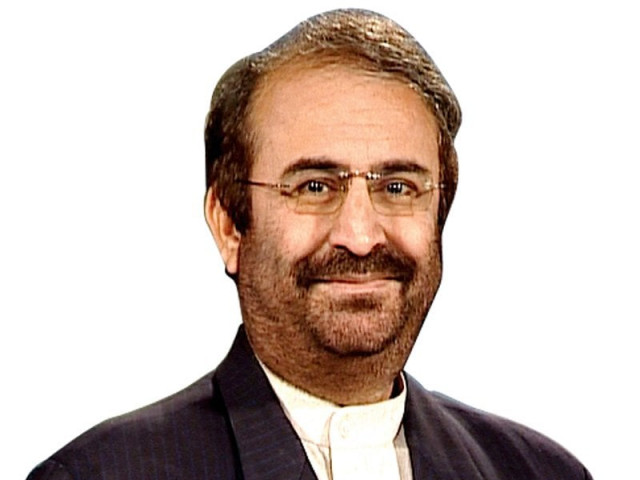Border crossings on Torkham set to become major bone of contention
Ambassador says Afghan govt not taken into confidence; Pakistan Embassy claims otherwise

Ambassador says Afghan govt not taken into confidence; Pakistan Embassy claims otherwise
Pakistani officials believe the decision has been taken to prevent militants from crossing into the country. The move is part of a comprehensive plan to secure the Durand Line which remains a bone of contention between Pakistan and Afghanistan.
Afghan Ambassador to Islamabad Dr Omar Zakhilwal has raised concerns over why the Afghan government was “not taken into confidence” on the matter.
“We do not see the wisdom of such restrictions at a time when we need to build bridges to improve our relations, not create further irritants or grievances,” Zakhilwal told The Express Tribune.
However, the Pakistan Embassy in Kabul insists the Afghan government was told about the decision to not allow anyone to cross the border without a valid visa after May 31.
“The step [has been taken] in the interest of both countries as 20,000 to 25,000 travellers cross the border at Torkham daily,” Pakistan Embassy Spokesperson Akhtar Munir told The Express Tribune over telephone from Kabul. “We are not clear [on] how many terrorists move among them on both sides. These elements create problems in both countries.”
Unilateral move
Overall, the decision has been viewed as unilateral and has been taken at the wrong time when the relationship between Kabul and Islamabad is at a low ebb, especially after the lack of progress on the peace process.
At this juncture, Pakistan and Afghanistan need to bridge the trust deficit. Any decision which affects thousands of people on both sides of the border should therefore have been avoided.
It is widely believed in Afghanistan that such decisions are made when both countries are embroiled in political differences. Some elements in Afghanistan believe Pakistan has taken this decision after Afghanistan, India and Iran announced their decision to sign a deal to develop Chabahar Port in Iran.
As cross-border movement of militants has always been a major irritant of an already tense relationship, Afghanistan will have to reach an understanding on how to stop cross-border crossings of such militants.
Perceptions of reality
Pakistanis believe those involved in the attacks on Bacha Khan University, Charsadda, Pakistan Air Force base in Badabher and the Army Public School used Torkham border to enter the country. There is a pressing need to develop a system of management to end the long-standing issue of loose border control.
Pakistani officials believe they have suggested a border control mechanism on a number of occasions. However, Kabul had been unwilling to come up with any suggestions on the matter. They also believe there is a false perception in Afghanistan that any move by Pakistan on border management is an attempt to mount pressure to recognise the border.
Amid differences
Although Pakistan considers the border issue to be closed and settled, Afghanistan considers it the Durand Line and not a border. Afghanistan’s approach has not garnered international support and the US has also agreed with Pakistan’s stance on the matter.
When former Afghan president Hamid Karzai raised the issue during his rule, Washington once again reiterated its position.
“Our policy has not changed,” former US State Department spokesperson Victoria Nuland stated at a daily briefing when asked about Washington’s position on the Durand Line. “We see this as the internationally-recognised boundary.”
She was defending remarks by the then US Special Pak-Afghan Envoy Marc Grossman and other Washington officials who said they considered the Durand Line an internationally-accepted boundary.
Independent political commentators in Afghanistan and Pakistan disagreed with the latter’s border restrictions and called for a bilateral arrangement to find an amicable solution to the illegal movement.
Afghan analyst Nazar Mutmaeen says Pakistan’s decision will particularly annoy divided families who live near border areas on both sides and move without any documents.
“I think Pakistan wants to exert political pressure on Afghanistan either through the closure of the Torkham border or making visas compulsory,” he told The Express Tribune on Friday. “The divided Pukhtun families, who live close to the border, have the right to move freely across the border under the Durand Line.”
He fears the decision can lead to “hatred among the Pukhtuns”.
Published in The Express Tribune, June 4th, 2016.



















COMMENTS
Comments are moderated and generally will be posted if they are on-topic and not abusive.
For more information, please see our Comments FAQ